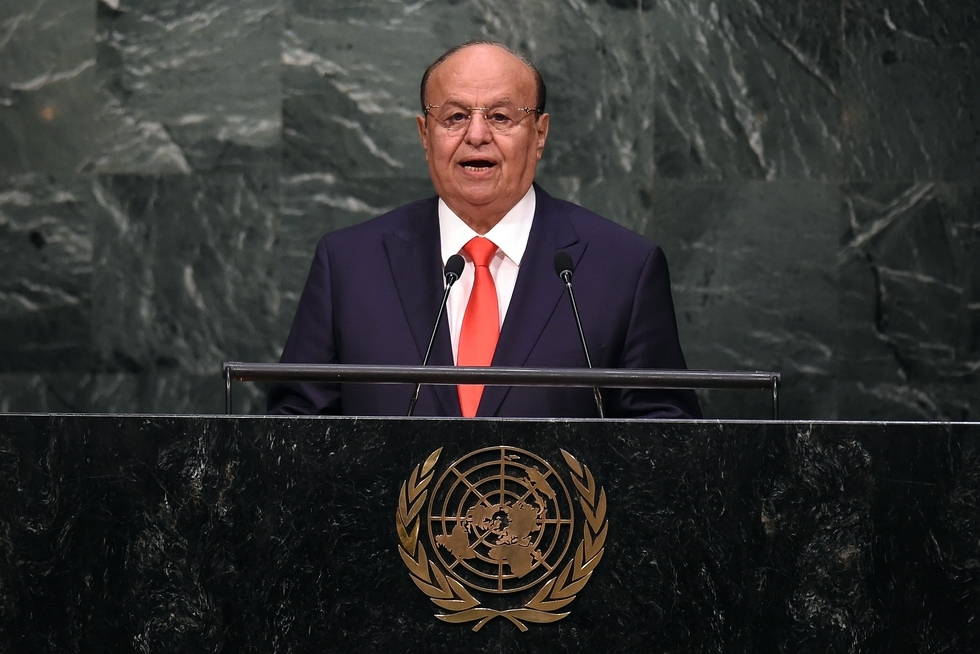Yemen president attacks 'unacceptable' expulsions from Aden

Yemen's president has criticised what he called the "unacceptable" expulsion from Aden of hundreds of people originating from the north the country, after government loyalists drove Houthi fighters out of the southern port city.
"The individual acts of expelling citizens of Taiz and other cities (from Aden) is unacceptable," Abd Rabbuh Hadi said late on Sunday, quoted by the official Saba news website.
Taiz, he added, was of strategic importance to Aden. Located in the southwest, Taiz was historically part of northern Yemen, whose residents are viewed as occupiers by many inhabitants of Aden and other provinces in the formerly independent south.
The expulsions were ordered at the behest of security officers appointed by Hadi, according to MEE sources, suggesting that the president-in-exile does not control those in Aden.
Ahmed bin Dagher, the prime minister, said acts by "dozens do not necessitate in any case expelling hundreds" of northerners from the city, describing the move as "harsh collective punishment against a group of citizens".
Yemen has been torn by deadly conflict since Houthi rebels descended from their northern strongholds and seized the capital Sanaa in September 2014 before extending their reach to other parts of the country.
In March last year, pro-government forces and southern fighters backed by a Saudi-led military coalition drove the rebels out of southern regions, including Aden.
But authorities have struggled to secure the city, which the government declared as Yemen's temporary capital, as attacks attributed to al-Qaeda and the Islamic State (IS) group increased.
Pro-government activists and coalition commanders accuse former president Ali Abdullah Saleh, who has allied with the Houthis, of backing the militant groups to carry out attacks against Hadi's loyalists.
Bin Dagher called for improvements in security for Aden, and appealed against the "punishment" of northerners.
The prime minister said Aden's governor and its security chief needed to "control the actions of all services that operate under their command".
These acts were "unconstitutional and illegal" as well as against "basic human rights".
Bin Dagher also appealed for those who have been expelled to "return to practising their normal lives" and ordered authorities in the city to protect them, Saba reported.
Since pushing the rebels out of Aden in July, Yemen's government has merged southern militia groups, many of them separatists, who fought alongside loyalists into the ranks of the armed forces and security services.
The southern state, known then as People's Democratic Republic of Yemen, was independent before the unification of Yemen in 1990.
In 1994, a short-lived secession bid was crushed by Sanaa troops and since then the citizens of the south have complained of discrimination.
Many northerners who have moved to Aden and other cities in the south are accused by southerners of having benefitted from the previous regime of Saleh to seize land and property from locals.
Last month, thousands of supporters of the separatist Southern Movement demonstrated in Aden for secession of the south.
New MEE newsletter: Jerusalem Dispatch
Sign up to get the latest insights and analysis on Israel-Palestine, alongside Turkey Unpacked and other MEE newsletters
Middle East Eye delivers independent and unrivalled coverage and analysis of the Middle East, North Africa and beyond. To learn more about republishing this content and the associated fees, please fill out this form. More about MEE can be found here.




